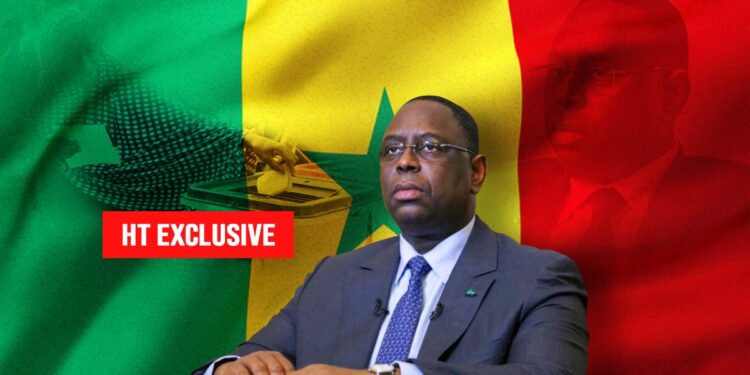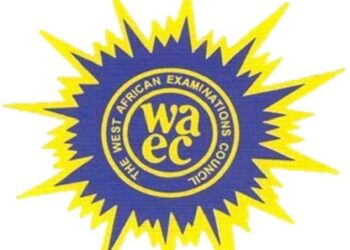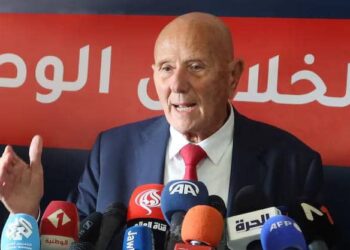By John Ikani
Senegalese President, Macky Sall on February 3rd, postponed elections that were scheduled for February 25th in the West African Nation.
His announcement of the postponement sparked a wave of violent protests, It has also drawn criticism from the opposition as well as raised concerns globally.
Mr Sall said he delayed the election due to a dispute over the list of candidates to run in the now-postponed poll and alleged corruption within the constitutional body that handled the list, among other “irregularities.”
The postponement of the presidential poll is unprecedented for Senegal which is seen rare example of democratic stability in West Africa.
The move plunges Senegal into uncharted constitutional waters with fears of a power grab and attendant chaos that are capable of worsening the political instability in West Africa, a region that has recently seen military coups in Mali, Niger and Burkina Faso.
READ ALSO: Reopening Of Niger’s Border With Nigeria: X-raying The Economic Implications
Amid the fears, Mr Sall reiterated that he will not run for a third term.
“For my part, my solemn commitment to not present myself in the presidential election remains unchanged. I will engage in an open national dialogue in order to review the conditions of a free, transparent and inclusive election,” he said in a televised broadcast announcing the poll extension.
However, Mr Sall’s assurances were met with scepticism as he has a well-recorded history of backtracking on promises or going against his own words.
Flashback to 2011
Mr Sall had during his election campaign in 2011, strongly warned against any attempt by the then-incumbent President Abdoulaye Wade to extend his tenure, stressing that such moves would be unconstitutional and destabilizing.
In his own words: “A president cannot extend his term in office. It’s not possible. He cannot extend his mandate for one day. Otherwise, the country would be plunged into chaos and people won’t recognise his legitimacy and there would no longer be authority in the country.”
12 years later, Mr Sall who was due to leave office on 2 April has postponed Senegal’s elections and has launched an investigation into candidates’ approval process.
Fears of power grab
A power grab refers to an attempt by an individual or group to acquire or consolidate power in an unlawful or unethical manner.
Mr Sall first ran for Presidency in 2012 when incumbent Abdoulaye Wade said he would seek a third term mandate.
Wade’s announcement threw Senegal into chaos and at least six people died during protests in the country.
Mr Sall soon became the poster child of a new Senegal with one of his pledges being to shorten the presidential mandate.
“If I am elected for seven years, I promise to only serve five years, and this forum, which will limit the number of mandates to two, and the duration to five years, will not be amendable.”
Mr Sall successfully changed the constitution in 2016, but a controversial transitional clause allowed him to complete a seven-year term under the old rule.
In other words, the referendum that saw the constitutional change was held to reduce the presidential term from seven years to five years, starting with the presidency that follows Mr Sall’s first term.
After completing his first seven-year term, Mr Sall was re-elected in 2019 and began his second five-year term.
As Senegal approached its February 2024 elections, Mr Sall who was due to leave office in a few weeks, postponed the polls.
The Senegalese parliament subsequently voted to extend Sall’s term until December 2024, after a heated debate which AP reports saw security forces storm the legislative building to forcefully remove several opposition lawmakers who were trying to block the voting process.
Critics fear the president is trying to cling on to power. They claim the extension allows Mr Sall to potentially run for another term in the December 2024 election.
Reactions
“Sall led us to believe that he wasn’t going to run for a third term, but in the end, he never gave up on the idea of running a third term,” remarked Abdou Khafor Kandji, Member of ‘YEN A MARRE’ Movement to BBC Africa.
Also commenting on the development, the host of The Africanist Podcast, Bamba Ndiaye reports that “Many entities, including the opposition, have stated after April 2nd, the official end date of his term, he will be considered an illegitimate president. He cannot represent or sign off on anything in the name of Senegal.”
In the streets of Senegal where protests have been carried out against Mr Sall’s move, citizens appear to present a united front.
“The question isn’t whether we are afraid, the question is if we are ready to let the regime go ahead with its agenda or say no. The answer is simple, we have to say no,” said a protester, Malick Diouf to newsmen.
ECOWAS concerned
Meanwhile, the Economic Community of West African States (ECOWAS), appears to be deeply concerned about the democratic process in Senegal.
The Chair of the regional bloc who is also President of Nigeria, Asiwaju Bola Tinubu was due to meet Sall on Monday.
However, the meeting has been indefinitely postponed due to massive protests and violent clashes and deaths trailing the announcement of the postponement of polls.
Heritage Times [HT] gathered that Senegalese voters also protested in European capitals over the weekend.
The postponed meeting was expected to see the Nigerian leader call on Sall to respect the constitution of his country and to avoid plunging Senegal into a sustained crisis.
Previously consisting of 15 members, ECOWAS has been weakened to 12 states following the collective decision by junta-led Mali, Burkina Faso and Niger to withdraw from the regional bloc.

































